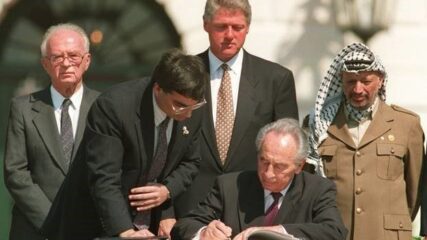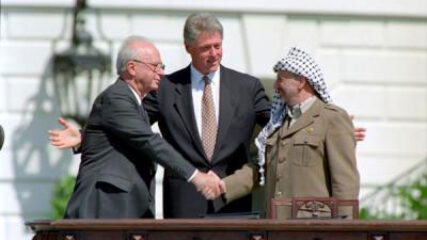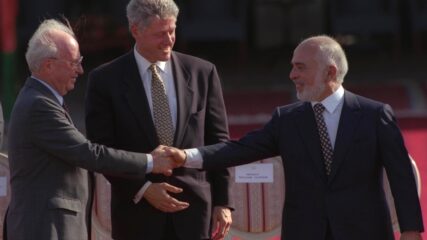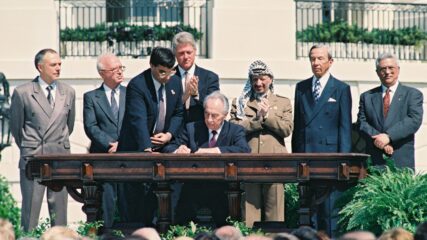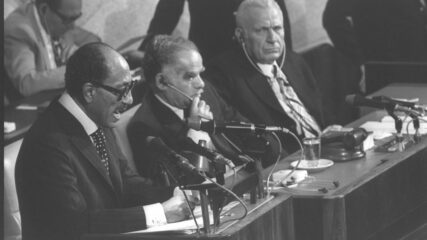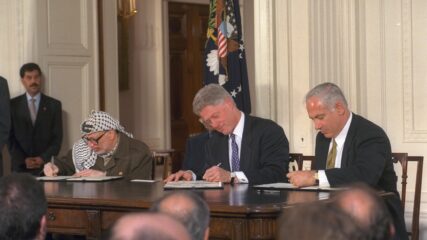April 7, 1987
The Jordanian king and Israeli Labor Party leaders secretly outline a plan to convene an international conference to move Israeli-Palestinian talks forward through a conference format, but Likud opposition leaders squash the idea.
July 28, 1988
Jordan's King Hussein made a strategic decision to disassociate administratively from the West Bank, leaving it to focus Jordanian national identity on only the east bank of the Jordan River. The PLO subsequently negotiated with Israel to rule over some of these lands, as codified in the
1993 Oslo Accords, but no Palestinian state was promised.
November 1, 1995
Days before his assassination, Yitzhak Rabin explains that he accepted the Oslo Accords and shook Yasser Arafat's hand because the PLO represented the last hope for a secular Palestinian nationalism amid the rise of Hamas.
September 23, 1993
Foreign Minister Shimon Peres supports the Oslo Accords, opposes a Palestinian state and rejects Israel's role in the Gaza Strip as the enforcer of security — all views that have continuing relevance for Gaza.
November 1, 1995
(November 1, 1995) Interview with Prime Minister Yitzhak Rabin by anchorman Ehud Yaari, Kol Yisra’el party affairs correspondent Yaron Dekel, and YEDI’OT AHARONOT political correspondent Shimon Schiffer
September 2018
When a leader of one country considers whether the time is ripe to commence peace negotiations with the leader of an enemy, there are two important questions that the leader must consider: Is the other leader willing to make the sacrifices necessary to attain peace? Is that leader strong enough to make those sacrifices and enforce the deal internally, that is, is he capable? The answer to both of these questions must be ‘yes.’ A willing but incapable leader is as bad for reaching a peace treaty as a capable but unwilling leader.
September 18, 2023
This initial Oslo reading compilation was collected in 2018, to recall Oslo 25 years later; it was updated in September 2023. The compilation is of course not inclusive. An effort was made to include items that...
October 23, 1998
With Israeli-Palestinian talks in a hapless state, President Clinton rejuvenates them. In the Arafat-Netanyahu agreement Israel shares Hebron, with the CIA playing a role in West Bank security.


